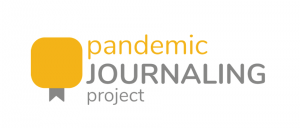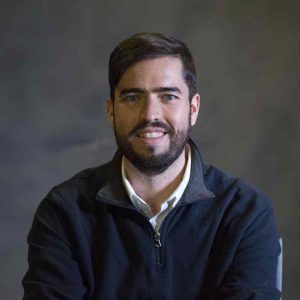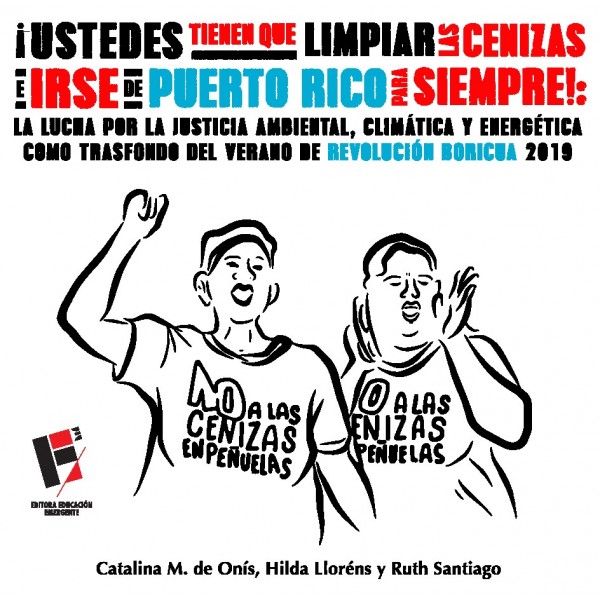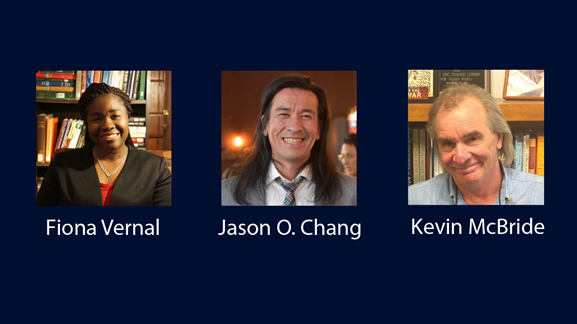 El Proyecto Diarios de la Pandemia (Spanish)
El Proyecto Diarios de la Pandemia (Spanish)
Esta primavera, cuando la fuerza y la magnitud de la pandemia de COVID-19 empezaron a hacerse cada vez más claras, un equipo interdisciplinario de investigadores en la University of Connecticut, la Brown University, y el Trinity College se apuró a crear el Proyecto Diarios de la Pandemia, una plataforma digital para escribir diarios, que también incluye una investigación académica. El Proyecto Diarios de la Pandemia permite a cualquier persona, en cualquier parte del mundo, crear un registro semanal de sus experiencias en estos tiempos turbulentos, usando texto, grabaciones de voz, y imágenes, para si mismos y la posteridad. Cualquier persona que tenga acceso a un celular, tableta, o computadora puede contribuir, en inglés y en español, en sólo 15 minutos cada semana. El Proyecto está abierto a todos, pero nuestro equipo está especialmente comprometido a grabar las experiencias de comunidades que están afectadas desproporcionadamente por la pandemia – especialmente trabajadores esenciales (en la salud y otros sectores) y comunidades de color, que se enfrentan con proporciones de riesgo e infección de COVID-19 significativamente más altas. Los participantes pueden visualizar y bajar un archivo completo de sus respuestas en una página web protegida por contraseña, y si lo desean, pueden dar su permiso para compartir sus anotaciones de diario en nuestra página Diarios Recientes. Después de 25 años, todas las contribuciones pasarán a ser parte de un archivo histórico accesible al público.
En colaboración con un Consejo Asesor diverso, compuesto por expertos en historia, psicología, las humanidades digitales, y otras disciplinas, las fundadoras del Proyecto Sarah Willen (UConn) y Katherine Mason (Brown) – las dos antropólogas – se alegran de que la plataforma esté surgiendo como un espacio para compartir reflexiones significativas cada semana. Al mismo tiempo, el equipo está trabajando en “pre-diseñar un archivo” que tendrá valor para investigaciones en las humanidades, las ciencias sociales, y las ciencias de la salud, hoy y en el futuro. Antes de crear sus primeras anotaciones de diario, los participantes responden algunas preguntas básicas sobre si, su exposición al COVID-19, y su estado de salud. Siguen dos oportunidades para realizar anotaciones de diarios, incluyendo una pregunta recurrente sobre el impacto de la pandemia en su vida, y la opción de elegir entre dos preguntas sobre temas como trabajo y financias, salud, discriminación y racismo, y también experiencias de conexión social, comunidad, y arte. Aunque inicialmente el Proyecto fue desarrollado para captar las experiencias de la pandemia de COVID-19, su meta ha expandido, por necesidad, para incluir las reacciones de los participantes a la muerte de George Floyd, y el consecuente descontento social y político que este asesinato ha encendido en los Estados Unidos y en el mundo entero. Este nuevo enfoque es coherente con el mandato del Proyecto, que saluda a los visitadores de la página web con la frase: “Usualmente la historia está escrita por personas en posiciones de poder… La meta del Proyecto Diarios de la Pandemia es de asegurarse que se hagan oír las voces de las personas ordinarias que están viviendo esta pandemia, y que sus experiencias sean recordadas.”
El Proyecto Diarios de la Pandemia se ha puesto en marcha con fondos de varias unidades en la University of Connecticut, incluyendo El Instituto (Institute of Latina/o, Caribbean, and Latin American Studies), la Oficina de Asuntos Globales (Global Affairs), el Instituto de Derechos Humanos (Human Rights Institute), el Instituto de Colaboración en Salud, Intervención, y Políticas Públicas (InCHIP), y también el Centro de Estudios Urbanos y Globales (Center for Urban and Global Studies) del Trinity College y el Centro de Entrenamiento para el Estudio de Poblaciones (Population Studies and Training Center) en la Brown University.
The Pandemic Journaling Project (English)
This spring, as the force and magnitude of the COVID-19 pandemic became increasingly clear, an interdisciplinary team at the University of Connecticut, Brown University, and Trinity College raced to create the Pandemic Journaling Project, a combined journaling platform and research study that lets anyone around the world create a weekly record of this turbulent time using text, voice recordings, and images, for themselves and for posterity. With versions in English and Spanish, anyone with access to a smartphone, tablet, or computer can contribute in only 15 minutes each week. While the Project is open to all, the team is especially committed to recording the experiences of communities disproportionately affected by the pandemic – especially essential workers (in health and other sectors) and communities of color, who face significantly higher rates of COVID-19 risk and infection. Participants will be able to view and download a full archive of their own responses via a password-protected website and, if they choose, give permission to share their entries on the project’s Public Journal Entries page. After 25 years, all contributions will become part of a publicly accessible historical archive.
Teaming up with a diverse Advisory Board comprised of experts in history, psychology, digital humanities, and other fields, Project founders Sarah Willen (UConn) and Katherine Mason (Brown), both anthropologists, are pleased to see the platform emerge as a meaningful space for weekly reflection. At the same time, the team is working to “pre-design an archive” that will have value to researchers in humanities, social sciences, and health fields, now and in the future. Before creating their first journal entries, participants are asked basic questions about demographics, COVID-19 exposure, and current health status. Two journaling opportunities follow, including one recurring question about the impact of the pandemic on one’s life and a choice of two weekly questions on topics such as work and finances, health, and encounters with discrimination and racism, as well as experiences of social connection, community, and the arts. Although the Project initially was developed to capture experiences of the COVID-19 pandemic, its scope has expanded, by necessity, to include participants’ reactions to the death of George Floyd and the widespread social and political unrest his murder has ignited across the United States and around the world. This expanded focus hews closely to the Project’s declared mandate, which greets website visitors: “Usually, history is written only by the powerful. … The goal of the Pandemic Journaling Project is to make sure that ordinary people struggling through this pandemic have their voices heard, and their experiences remembered.”
The Pandemic Journaling Project was launched with seed funding from various units at the University of Connecticut, including El Instituto (Institute of Latina/o, Caribbean, and Latin American Studies), the Office of Global Affairs, the Human Rights Institute, and the Institute for Collaboration on Health, Intervention, and Policy (InCHIP), as well as the Center for Urban and Global Studies at Trinity College and the Population Studies Training Center at Brown University.

 El Proyecto Diarios de la Pandemia (Spanish)
El Proyecto Diarios de la Pandemia (Spanish) 
